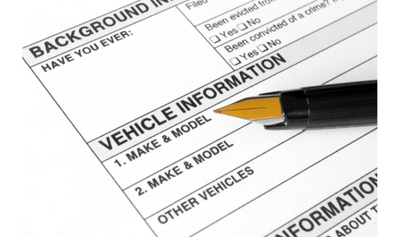Public Adjuster Bond Claims Guide
Estimated Read Time: 5 minutes10-20-2021

A public adjuster is a third-party professional that aids in claims disputes between policyholders and their insurance companies and who is commonly required to hold a surety bond. A policyholder would hire the public adjuster to pursue appropriate compensation for repairs when they feel that the insurance company’s adjuster may not be correctly assessing the damage. Typically, these claims disputes are in regards to destructive events (like a flood or fire) so the Public Adjuster Bond is enforced to make sure that a public adjuster’s illegal actions will not end up causing the policyholder further harm.
Jet Insurance Company protects both the public adjuster and the injured policyholder. How, exactly? As the bond provider, Jet is obligated to pay the client for violations that are covered by the bond, therefore reimbursing them for damages caused by the public adjuster. The good news for public adjusters is that Jet will defend you against false claims.
How to Avoid Claims
Public Adjuster Bonds are typically conditioned on the public adjuster following the terms given in the contract and having honest business practices; claims are usually filed for damages caused by violations of the duties given by contract or state legislature. Here are some examples of what actions would be considered illegal for a public adjuster to do:
- Conviction of unfair practices or insurance fraud
- Taking payment for deceitful or unfair business practices or for services that haven’t been performed
- Withholding, mishandling, or converting money or property acquired during insurance business
- Obtaining a public adjuster license by intentionally misleading or misrepresenting information when submitting the license application
- Taking advantage of a vulnerable person who is undergoing trauma or otherwise breaking the ethical code of conduct
Complaints
A client who has been harmed financially by a public adjuster acting in violation of state or licensing regulations can file a complaint against the public adjuster. Public adjusters will need to keep records of complaints, and any steps taken to resolve the complaint. Take note here — there absolutely should be an effort to make amends should the public adjuster have made an error whether accidental or deliberate.
The state regulator will typically investigate whether illegal or unethical conduct has brought on damage to the client. If the adjuster is found in violation, action will be taken against the Public Adjuster Bond for reimbursement.
The Claims Process with Jet
Claims are usually filed by the regulator that holds the bond, such as a government department, on behalf of the client. Although each state has its own variation of the claims process, here is a general chain of events that would happen prior to the bond claim filing:
- Client is financially damaged by the public adjuster’s unethical or illegal behavior
- Client files a complaint with the regulatory agency
- Regulator investigates the complaint; legal proceedings may occur at this time
- Regulator finds the public adjuster in violation and determines that damages have occurred
- Regulator takes action against the Public Adjuster Bond to recover funds to the injured client
How Does Jet Help When a Claim Is Filed?
When you receive a claim filing, Jet will take a look at all available information. Since the claim is filed by the regulator, it’s highly likely that they have sufficient evidence of damages and are proceeding with the claim to bring about reimbursement for the policyholder. Nonetheless, Jet will double-check for any way to resolve the issue; but if the only resolution is a claim payout, Jet will pay the injured policyholder.
Of course, once the claim is paid out, restitution is given to the injured party but this doesn’t excuse the public adjuster from liability. The public adjuster must reimburse Jet to recover the bond to its full amount.
Are There Limits to Claim Filings?
Claims are usually held to the required bond limit — that’s why it’s called a limit, because the amount of liability cannot exceed the specified amount. Public Adjuster Bonds are usually assigned a limit between $5,000 and $50,000. Of course, every state has its own requirements and can set the limit at a certain price point or appoint a satisfactory amount.
Claims are also limited by when they can be submitted. Coverage by the bond is only applicable for actions that occurred while the bond was active and on file. Some states will also impose a time frame in which claims can be filed. For example, in Georgia, claims can be filed on a Public Adjuster Bond up to five (5) years after the end of the public adjuster’s license—keep in mind that no matter when the claim is filed, the offensive action must have taken place within the bond’s active period.

Public Adjuster Bond Claim Example
Let’s say we have a public adjuster named Jack Lamont. Jack is hired by Jill Waters, a homeowner whose house flooded and who doesn’t agree with the insurance adjuster’s estimate, to get a fair amount for making repairs on damages. Jack takes full payment upfront for his services as a public adjuster. But as time goes on, he doesn’t deliver on fulfilling those services, and Jill is left short of the money she paid Jack. And Jack is not able to complete an estimate for Jill, so what is she to do?
Complaint
The first step that Jill can take is to request a refund from Jack, which is the easiest way to solve this issue. If Jack is unable to or refuses to refund Jill, then she would reach out to the regulator who is in charge of Jack’s license and managing the Public Adjuster Bond. Once she has filed her complaint, the regulator will look into the matter.
Investigation/Judgment
The regulator will check for proof of the accusation, which may include court proceedings. Jill can show proof of payment and lack of work, so the regulator deems the complaint valid and takes action on the Public Adjuster Bond.
Recovery
Jet receives notice of the claim and reviews the evidence. Since the regulator has already investigated, the claim holds up. Jet is obligated to pay Jill in the amount of the claim (what she paid for the services Jack didn’t complete). The claim is paid out from the bond, but Jack will need to restore the bond by paying Jet back. This step is crucial as Jack needs to maintain the bond as a licensing requirement.


